For millions of people with disabilities worldwide, finding a job is more than just a challenge—it is a battle against deep-rooted societal perceptions. While some cultures embrace inclusivity and see people with disabilities as valuable members of the workforce, others still hold outdated beliefs that limit opportunities.
In many places, disability is viewed as a weakness rather than a different way of navigating the world. This perception directly affects hiring decisions, workplace accommodations, and career growth. Some employers assume that people with disabilities cannot be productive, while others hesitate to hire them due to misconceptions about the costs of providing accommodations.
But times are changing. With the rise of assistive technology, inclusive policies, and disability advocacy, more workplaces are beginning to see ability rather than limitation. Companies like Robobionics are playing a role in this shift by creating advanced prosthetics that help individuals regain independence and confidence. However, breaking cultural barriers requires more than just technology—it requires a change in mindset.
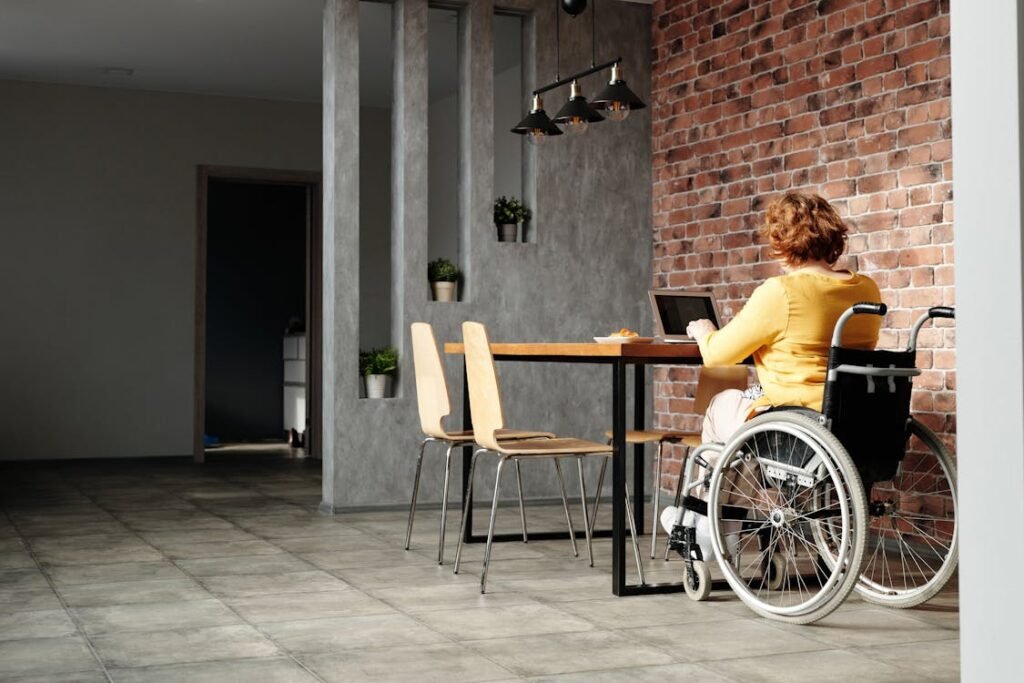
Cultural Attitudes Toward Disability and Their Effect on Employment
The way a society perceives disability plays a significant role in shaping employment opportunities. Some cultures promote inclusion and recognize the skills and potential of people with disabilities, while others allow stigma and outdated beliefs to limit access to jobs.
These cultural attitudes often determine whether companies actively hire people with disabilities or avoid doing so due to misconceptions about their abilities.
Disability as a Sign of Weakness or Fate
In many parts of the world, disability is still associated with weakness, dependence, or even punishment. In some cultures, there is a belief that disability is a result of past mistakes, bad karma, or divine retribution.
This mindset creates a barrier for people with disabilities, as employers may hesitate to hire them due to unconscious bias. Rather than being seen as individuals with valuable skills, they are often viewed as people who require constant assistance.
This perception affects not only hiring decisions but also workplace dynamics. Employees with disabilities may struggle to be taken seriously or may be overlooked for promotions.
Some employers assume that hiring a person with a disability means taking on a burden rather than gaining a capable worker.
Even when a person with a prosthetic limb, for example, is fully qualified for a job, they may be rejected simply because of the employer’s preconceived notions.
The Influence of Economic Development on Disability Inclusion
Wealthier nations with strong labor laws and disability rights movements have made significant progress in workplace inclusion. In countries like the United States, Canada, and much of Western Europe, disability is increasingly seen through the lens of equal opportunity rather than limitation.
Governments enforce laws that require businesses to accommodate employees with disabilities, and many companies actively promote diversity hiring.
In contrast, in developing nations where job markets are highly competitive and labor protections may be weaker, people with disabilities often struggle to find work.
Employers may prioritize candidates who they believe can perform tasks without any need for accommodations. Even when individuals with disabilities prove they are capable, they often face social barriers that prevent them from being given a fair chance. Without strong legal frameworks or cultural support, disability inclusion remains a low priority for many businesses.
Family and Community Influence on Employment
In many cultures, family and community expectations shape a person’s career path. In societies where people with disabilities are seen as dependent, families may not encourage them to seek employment.
Instead, they may assume that a relative will always take care of them. This belief prevents many capable individuals from pursuing careers, even when they have the skills and motivation to work.
On the other hand, in cultures that value self-reliance, people with disabilities are often encouraged to find ways to support themselves. Families and communities play a crucial role in boosting confidence and providing opportunities.
In countries where disability inclusion is part of the social fabric, people with prosthetic limbs, visual impairments, or other conditions are more likely to enter the workforce and succeed.
How Workplace Design Reflects Cultural Attitudes
The physical design of workplaces also reveals cultural attitudes toward disability. In societies that prioritize inclusion, offices, factories, and public buildings are built with accessibility in mind.
Ramps, elevators, wide doorways, and adaptive workstations make it easier for employees with disabilities to work efficiently.
In places where disability is still viewed as a limitation, workplaces often lack basic accessibility features. Many office buildings have no ramps or elevators, making it difficult for people with mobility impairments to even enter the workspace.
Without proper infrastructure, employers may avoid hiring people with disabilities simply because their workplaces are not designed to accommodate them.
Creating an inclusive work environment requires more than just infrastructure changes. Employers need to shift their mindset from viewing disability as a challenge to recognizing it as an opportunity for diversity and innovation.
Companies that embrace this approach often find that employees with disabilities bring fresh perspectives, problem-solving skills, and resilience that enhance the overall work culture.
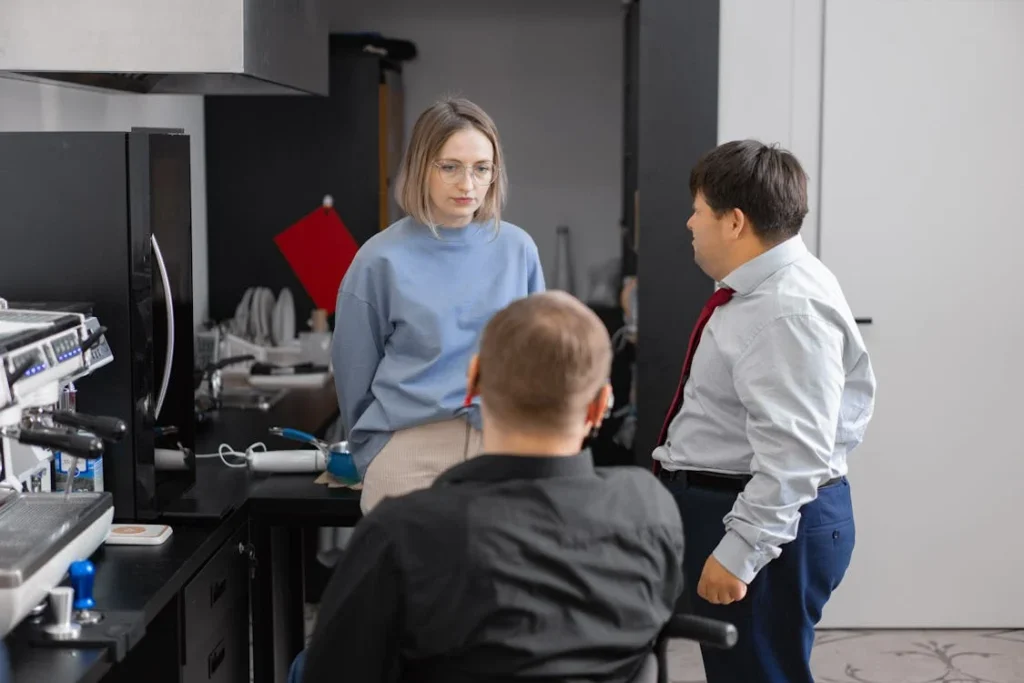
The Impact of Stereotypes on Hiring Decisions
Stereotypes about disability significantly affect hiring practices and limit employment opportunities for many skilled individuals. When employers hold biased views—whether consciously or unconsciously—it creates an invisible barrier that prevents people with disabilities from entering the workforce.
Even when disability rights laws exist, social attitudes often dictate whether businesses actively embrace inclusion or simply comply with regulations without real commitment.
The Myth of Reduced Productivity
One of the most common misconceptions is that people with disabilities, including those using prosthetics, are less productive than their able-bodied counterparts.
Employers may assume that they will need more supervision, take longer to complete tasks, or require frequent time off. This belief is not based on facts but rather on outdated ideas that fail to account for advances in technology and accessibility.
Modern prosthetics, for example, enable users to perform a wide range of tasks efficiently. A person with a bionic hand, such as Grippy™ by Robobionics, can grip, hold, and manipulate objects just as effectively as someone with a natural hand.
With the right tools and accommodations, employees with disabilities can be just as, if not more, productive than other workers. However, as long as employers continue to assume that disability equates to inefficiency, many capable individuals will remain unemployed.
Overprotectiveness and Fear of Liability
In some cultures, particularly in countries where social welfare systems are weak, employers worry that hiring a person with a disability may lead to increased costs.
They fear that these employees will be more prone to injury or will need expensive workplace modifications. Some businesses also avoid hiring people with disabilities because they do not want to be responsible for long-term medical care or compensation in case of workplace accidents.
While safety concerns are valid in certain industries, this type of thinking assumes that people with disabilities cannot assess risks for themselves. Many individuals with prosthetics, for example, are fully capable of determining what tasks they can or cannot do.
Adaptive technology and workplace accommodations have made it possible for people with mobility challenges to work safely in fields like engineering, healthcare, and even physically demanding roles.
The assumption that hiring a disabled employee is a “risk” ignores the reality that every individual, regardless of physical ability, has strengths and limitations.
The Bias Against Customer-Facing Roles
In many industries, particularly those that involve direct customer interaction, people with disabilities are often excluded due to appearance-based biases.
Some employers believe that having an employee with a visible disability, such as a prosthetic limb, might make customers uncomfortable. This mindset stems from deep-seated social conditioning where disability is associated with weakness or dependence.
In cultures that value physical “perfection” in professional settings, people with disabilities are often pushed into back-office roles where they are less visible.
This practice not only limits career growth but also reinforces the idea that disability should be hidden from public view. By contrast, in countries that prioritize inclusion, many individuals with disabilities work in sales, hospitality, and media, proving that customers care more about service quality than the physical appearance of the person providing it.
Breaking the Cycle of Discrimination
The only way to challenge these stereotypes is through active representation and awareness. When people with disabilities are seen thriving in the workplace, it challenges preconceived notions and encourages others to adopt more inclusive hiring practices.
Media representation, corporate leadership programs, and disability advocacy all play a role in changing the narrative.
Employers who have hired people with disabilities often report unexpected benefits, such as increased team morale, problem-solving creativity, and higher employee retention.
Once businesses recognize that hiring individuals with disabilities is not an act of charity but a strategic advantage, workplace culture starts to shift.
At Robobionics, we believe that access to high-quality prosthetics is a key part of this change. By ensuring that advanced, affordable prosthetics are available, we empower individuals to confidently enter the workforce and break down the barriers imposed by societal misconceptions.
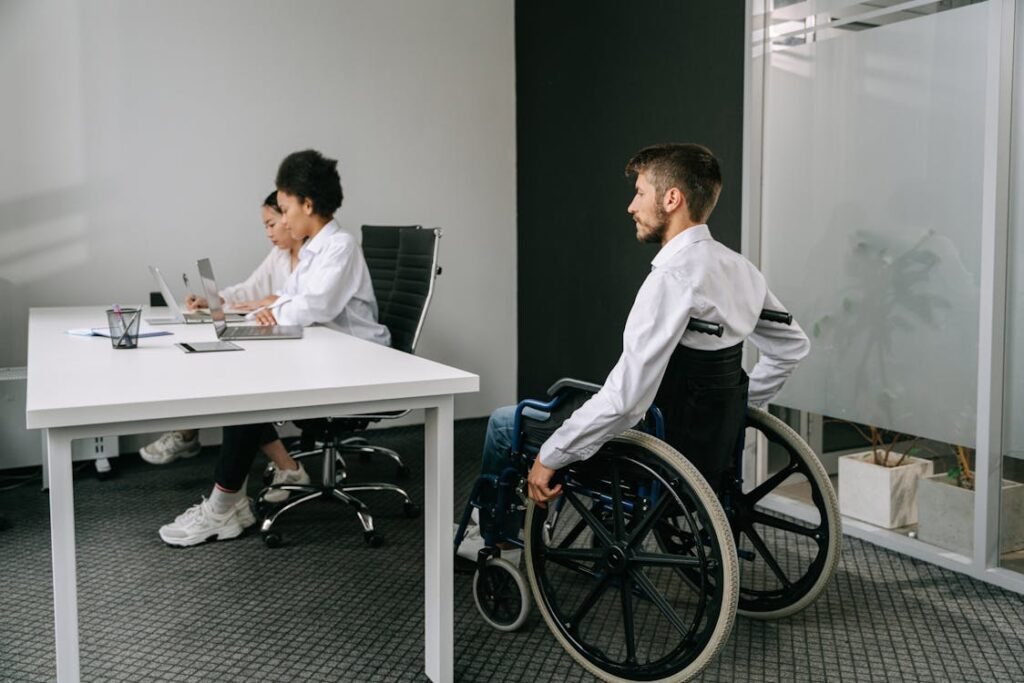
Legal Protections vs. Cultural Reality: The Gap in Disability Employment
Many countries have laws in place to protect the rights of people with disabilities in the workplace. These laws are meant to ensure fair hiring practices, reasonable accommodations, and protection from discrimination.
However, legal protections alone are not enough to change deep-seated cultural attitudes. The reality in many places is that despite the existence of disability rights laws, people with disabilities—including those using prosthetics—continue to face barriers when seeking employment.
Legal Protections: Progress on Paper
Countries with strong labor laws, such as the United States, Canada, and Germany, have clear regulations requiring employers to provide equal opportunities for people with disabilities.
The Americans with Disabilities Act (ADA) in the U.S., for example, mandates that employers make reasonable accommodations to enable disabled employees to work effectively. Similar laws exist in Europe, ensuring that businesses do not discriminate based on physical ability.
In India, the Rights of Persons with Disabilities (RPwD) Act, 2016, mandates that at least 4% of government jobs be reserved for individuals with disabilities. Other countries, including Japan and South Korea, have quota systems requiring companies to hire a certain percentage of disabled employees.
While these laws are steps in the right direction, enforcement remains a challenge, and cultural biases often prevent them from having the full intended impact.
Workplace Discrimination Despite Legal Protections
Even in countries with strong disability rights laws, workplace discrimination continues in subtle and not-so-subtle ways. In many cases, hiring managers find ways to bypass the laws by citing “other factors” in hiring decisions.
Instead of openly rejecting candidates with disabilities, they might say the role requires “certain physical capabilities” without specifying why. Others may avoid hiring disabled candidates out of fear that providing accommodations will be too expensive or complicated.
In countries where enforcement of disability rights laws is weak, people with disabilities often find that the law exists on paper but is rarely implemented in reality.
Employers may ignore hiring quotas without facing consequences, and employees with disabilities may struggle to demand accommodations without risking job security. Fear of retaliation prevents many individuals from reporting workplace discrimination, making it difficult to create lasting change.
The Role of Government and Advocacy Groups
While governments play a critical role in shaping disability employment policies, real change often comes from advocacy groups, NGOs, and forward-thinking companies.
Organizations that promote disability employment help bridge the gap between policy and practice by educating employers, conducting training programs, and showcasing the benefits of hiring people with disabilities.
Many multinational corporations have begun to set the standard for disability inclusion by creating accessible workplaces, training hiring managers to avoid unconscious bias, and publicly committing to diverse hiring practices.
When global brands embrace disability inclusion, they encourage smaller businesses to follow suit, proving that hiring people with disabilities is not just a legal requirement but a business advantage.
At Robobionics, we believe that access to high-quality prosthetics is a crucial part of this change. By making advanced prosthetic limbs more accessible and affordable, we enable more individuals to confidently seek employment without feeling limited by their physical condition.
However, true inclusion requires more than just assistive technology—it requires a shift in mindset across society, businesses, and policymakers.
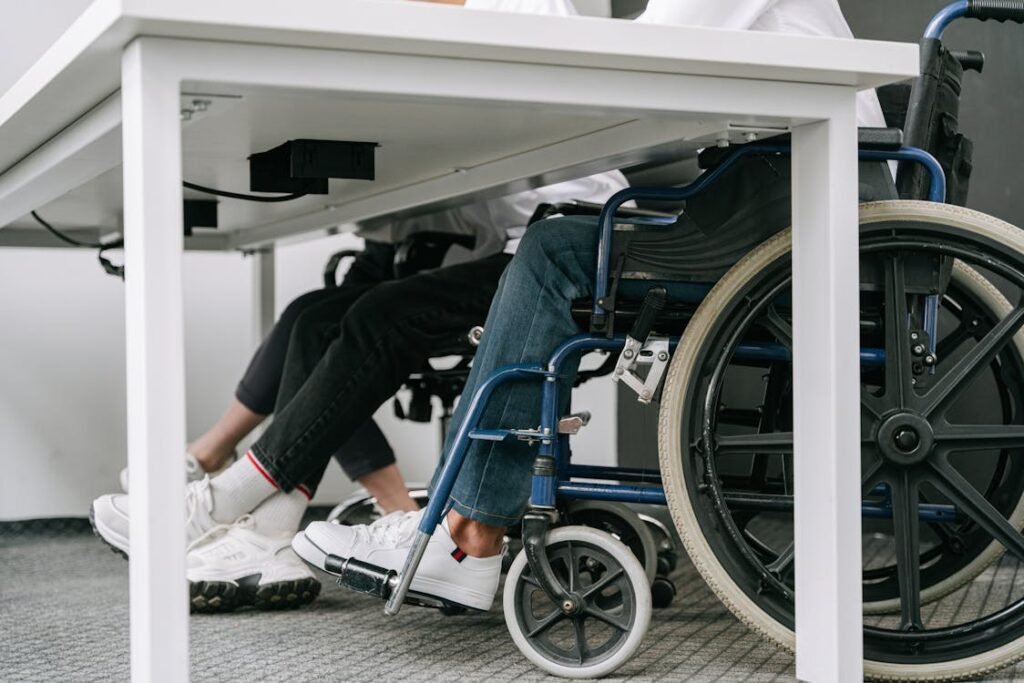
The Role of Technology in Bridging Employment Gaps for People with Disabilities
While cultural perceptions often dictate how people with disabilities are treated in the workplace, advancements in technology are breaking down barriers and creating new opportunities.
Assistive devices, artificial intelligence, and modern prosthetics have transformed the way people with disabilities work, proving that physical limitations do not equate to reduced capabilities.
However, the adoption of these technologies is often influenced by cultural attitudes and economic factors, affecting how widely they are implemented across different regions.
Assistive Technology as an Equalizer
For many people with disabilities, technology acts as a bridge to employment. Screen readers, voice recognition software, and adaptive keyboards enable visually impaired individuals to work in data entry, customer service, and software development.
Prosthetic limbs, such as Grippy™ by Robobionics, allow amputees to regain dexterity and perform jobs that require fine motor skills. Exoskeletons and mobility aids help individuals with mobility impairments participate in physically demanding professions.
Despite these advancements, access to assistive technology remains unequal. In developed countries, businesses and governments invest in making workplaces more accessible, integrating technology that helps employees with disabilities perform tasks independently.
Companies recognize that investing in adaptive tools is not just a compliance measure but a way to boost productivity and create a diverse workforce.
In contrast, in many developing nations, where cultural perceptions still see disability as a limitation rather than a challenge to be overcome, investment in assistive technology is lower. Employers may not be aware of the available solutions or may believe that these technologies are too costly to implement.
As a result, people with disabilities are often excluded from jobs they are fully capable of performing simply because they do not have access to the right tools.
Remote Work: A Cultural Shift Toward Inclusion
The rise of remote work has been a game-changer for many individuals with disabilities. In cultures where accessibility in physical workplaces is still lacking, the ability to work from home has opened up new career paths.
Without the need to commute or navigate inaccessible office buildings, people with mobility impairments or prosthetic users can work comfortably from their own space.
However, cultural attitudes still play a role in determining how widely remote work is accepted as a long-term employment model. In many regions, there is still a belief that employees must be physically present in an office to be productive.
This mindset can prevent companies from offering remote work as an option, even when it would be beneficial for both employees with disabilities and the organization itself.
In more progressive work environments, businesses are realizing that productivity is not tied to physical presence. As companies embrace digital transformation, more industries are offering flexible work arrangements, allowing people with disabilities to contribute meaningfully without facing physical barriers.
The Future of Inclusive Employment
The combination of assistive technology, remote work, and changing attitudes is shaping the future of disability employment. However, for these changes to be meaningful, they need to be accompanied by a shift in how societies perceive disability.
Technology alone cannot create inclusion—it must be paired with education, advocacy, and a cultural shift that recognizes the value of a diverse workforce.
At Robobionics, we are committed to driving this change. By making prosthetic technology more accessible and empowering individuals to reclaim their independence, we help break down barriers to employment.
The future should be one where no one is judged by their physical condition but by their skills, determination, and potential.
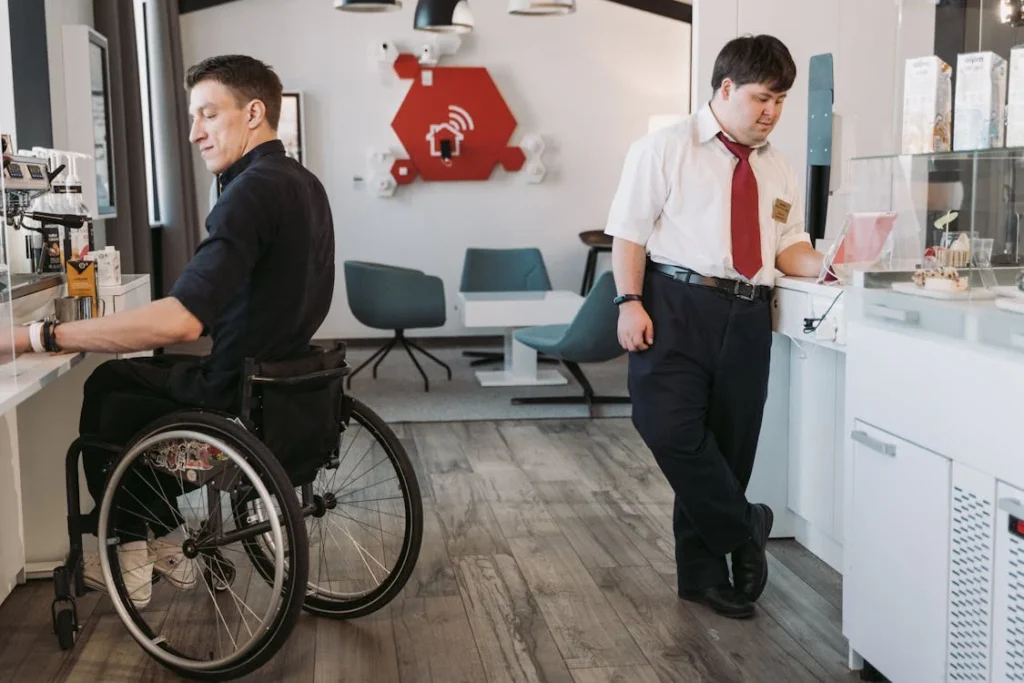
Changing Perceptions: The Power of Representation and Awareness
While technology and legal policies play essential roles in increasing employment opportunities for people with disabilities, cultural perceptions ultimately shape how inclusive a society becomes.
When individuals with disabilities are visible in leadership positions, the media, and public spaces, it shifts the narrative from seeing disability as a limitation to recognizing it as a natural part of human diversity.
The Role of Media in Shaping Public Perception
Media representation has a powerful influence on how people with disabilities are perceived in the workplace. When films, TV shows, and advertisements depict individuals with disabilities as independent professionals, entrepreneurs, and leaders, it normalizes their presence in the workforce.
On the other hand, when media portrays them solely as individuals in need of help or as symbols of inspiration without depth, it reinforces stereotypes that they are different from the rest of society.
In some cultures, there is still hesitation to show people with disabilities in mainstream roles. For instance, actors with disabilities are rarely cast in lead roles, and real-life professionals with disabilities are often missing from corporate advertisements.
This lack of visibility further alienates individuals with disabilities from professional spaces and reduces public awareness of their capabilities.
However, change is happening. In recent years, there has been a rise in campaigns featuring employees with disabilities, showcasing their skills rather than their conditions.
Companies that actively include individuals with disabilities in their marketing not only promote inclusion but also influence other businesses to follow suit. By normalizing disability in the workplace through media, cultural perceptions start to evolve.
Representation in Leadership and Business
One of the most effective ways to change perceptions is to have more individuals with disabilities in leadership positions. When people with prosthetics, mobility impairments, or other disabilities lead companies, work in government roles, or become successful entrepreneurs, they challenge existing biases.
In cultures where leadership is traditionally associated with physical strength or a flawless appearance, the presence of disabled professionals in executive roles sends a strong message: capability is not defined by physical condition.
Employees with disabilities who rise to leadership positions pave the way for future generations, proving that talent and hard work matter more than societal biases.
The Impact of Disability Advocacy and Public Education
Advocacy organizations and disability rights movements have been instrumental in changing workplace perceptions. Through public awareness campaigns, training programs, and policy recommendations, these groups educate businesses about the value of hiring people with disabilities.
In many countries, disability awareness training has become a standard part of corporate diversity programs.
These workshops teach employees and managers how to interact respectfully with colleagues who have disabilities, addressing common misconceptions and highlighting the benefits of an inclusive workforce.
Educational institutions also play a key role in changing perceptions. Schools and universities that integrate disability awareness into their curriculum help create a future workforce that values inclusion from an early stage.
By teaching young people that disability does not equal inability, societies can foster a culture where employment discrimination is less likely to occur.
Building a Future of Inclusion
The future of employment for people with disabilities depends on continuous efforts to challenge outdated cultural perceptions. When businesses, media, and policymakers work together to promote inclusion, they create an environment where individuals with disabilities, including prosthetic users, can succeed on equal terms.
At Robobionics, we believe that empowering people with disabilities through advanced prosthetic technology is only part of the solution. The bigger goal is to change how society views disability—not as a barrier to employment, but as a part of human diversity that strengthens the workforce.
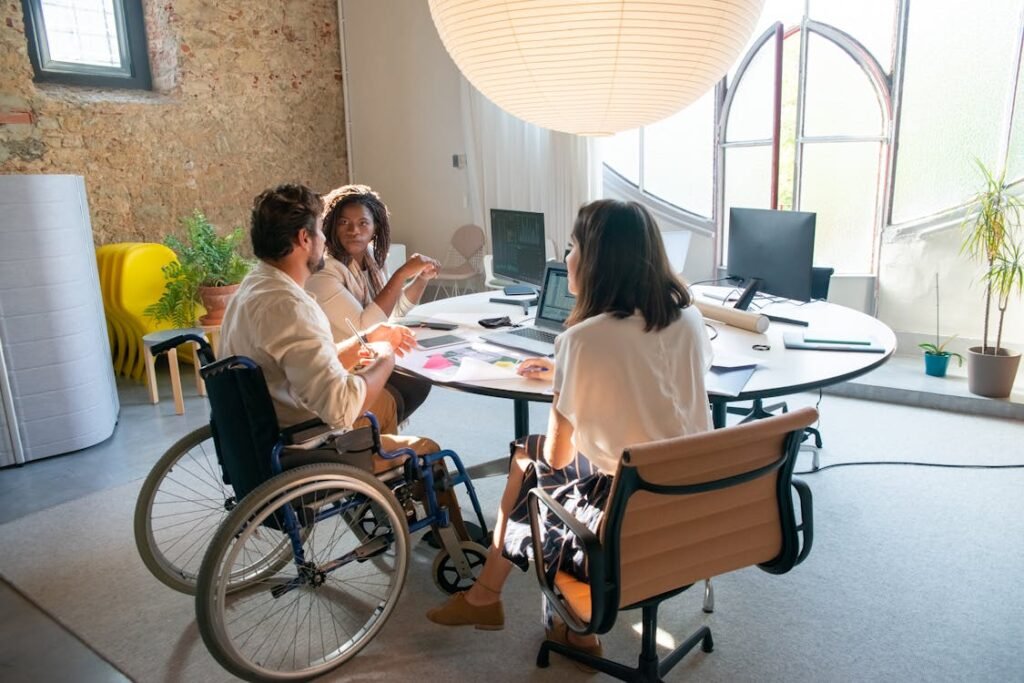
The Business Case for Hiring People with Disabilities
Beyond the ethical and legal reasons for inclusive hiring, businesses that actively employ people with disabilities often see tangible benefits. Studies have shown that diverse workplaces lead to higher innovation, better employee morale, and improved problem-solving.
Yet, in many cultures, the misconception persists that hiring individuals with disabilities is an act of charity rather than a strategic advantage.
Increased Productivity and Problem-Solving Abilities
One of the most overlooked aspects of hiring employees with disabilities is their adaptability and resilience. Many individuals with disabilities develop exceptional problem-solving skills because they have spent much of their lives finding creative ways to navigate an environment that is not always designed for them.
This ability to adapt quickly and think critically translates directly into workplace efficiency.
Employees with prosthetic limbs, for example, often develop enhanced motor skills, coordination, and patience, which can be valuable in industries requiring precision.
Many businesses that have embraced disability inclusion report that workers with disabilities bring new perspectives to team challenges, leading to better decision-making and innovation.
Higher Employee Retention and Workplace Loyalty
Companies that invest in disability inclusion often experience lower employee turnover. Studies have found that employees with disabilities tend to stay with their employers longer than their non-disabled counterparts.
When individuals with disabilities find a workplace that values them and provides necessary accommodations, they are more likely to remain loyal to the organization.
This stability benefits businesses by reducing hiring and training costs. High retention rates improve team cohesion, as long-term employees contribute to a stronger and more experienced workforce.
When businesses foster an inclusive culture, all employees—disabled or not—are more engaged, leading to a more positive work environment.
Improved Company Reputation and Customer Engagement
In today’s global economy, consumers are increasingly choosing to support companies that prioritize diversity and inclusion. Businesses that actively hire individuals with disabilities often enjoy stronger brand loyalty and positive public perception.
Companies that promote their inclusive hiring practices in marketing campaigns show that they care about social responsibility. Customers appreciate businesses that align with ethical values, and many choose to support brands that embrace inclusion.
This is particularly important in industries where customer trust and brand image play a major role in purchasing decisions.
Moreover, businesses that hire people with disabilities can better serve a diverse customer base. Employees with disabilities bring unique insights into product development, marketing, and customer service, helping companies design more inclusive products and experiences.
A workforce that reflects society’s diversity is better equipped to understand and meet the needs of all customers.
Financial Incentives and Government Support
In many countries, governments offer financial incentives to businesses that hire individuals with disabilities. These incentives may include tax breaks, grants for workplace modifications, or subsidies for assistive technology.
Employers who take advantage of these programs not only benefit financially but also contribute to social progress by creating more inclusive workplaces.
However, in regions where cultural attitudes toward disability remain negative, many businesses fail to leverage these opportunities. Some employers remain unaware of the financial benefits, while others hesitate due to unfounded concerns about additional costs.
Increased awareness of these incentives can encourage more businesses to embrace disability hiring as a smart business strategy rather than an obligation.
Building a More Inclusive Economy
For true change to happen, businesses must recognize that hiring people with disabilities is not just about compliance—it is about building stronger, more competitive companies. Inclusion should not be an afterthought but an integral part of hiring policies and corporate culture.
At Robobionics, we understand the importance of economic inclusion for individuals with disabilities. By providing high-quality prosthetic solutions, we empower people to pursue meaningful careers and contribute to society.
When businesses, policymakers, and communities work together to remove barriers, they create a world where talent is valued over physical ability, and everyone has a fair chance to succeed.
Conclusion
Cultural perceptions of disability have long influenced employment opportunities, but the world is gradually shifting toward a more inclusive mindset. While stereotypes and biases still exist, advancements in technology, legal protections, and growing awareness are breaking down barriers. Employers are beginning to recognize that hiring individuals with disabilities is not an act of charity but a strategic advantage that fosters innovation, loyalty, and diversity.
True inclusion requires more than laws and policies—it demands a shift in attitudes. When businesses actively embrace disability inclusion, they set a powerful example for society. Media representation, workplace accommodations, and leadership opportunities for disabled individuals help reshape public perception, ensuring that ability, not disability, defines a person’s career potential.
At Robobionics, we believe that access to high-quality prosthetics is a crucial part of this change. By empowering individuals with advanced prosthetic solutions, we enable them to enter the workforce with confidence and independence. The future should not be about overcoming disability but about removing unnecessary barriers so that everyone, regardless of physical condition, has an equal opportunity to thrive.




Pingback: Enhancing Organizational Success through Inclusive Hiring - Aartisto Web Media - Digital Branding